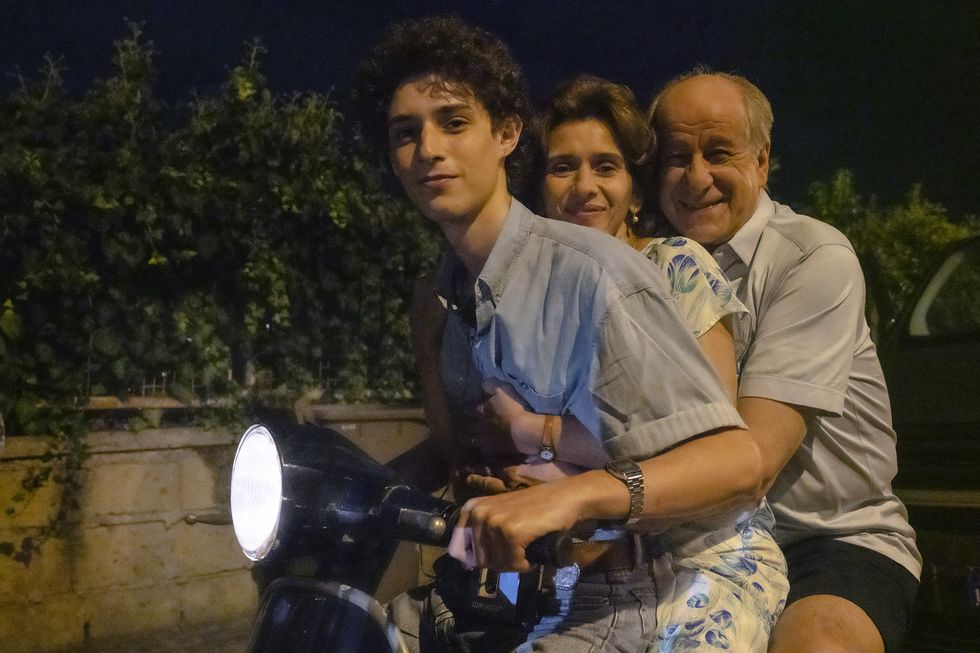Is anyone really rooting for The Power of The Dog? Will the internet finally break if Don't Look Up triumphs? Or are the ripples of a CODA backlash setting the stage for a disappointing conclusion to the 2022 Academy Awards? Most importantly: does anyone actually care?
This year's 'Best Picture' Oscar category feels bloated with films that nobody seems truly excited about; there is no hero, and everyone feels like a bit of an award season villain in their own special way. This malaise is in stark contrast to the buzz around the competitors for 'Best International Feature', a category containing some of the most powerful and compelling films of the past year, from the bewitching coming of age story of love and betrayal that is The Worst Person in The World, to Ryusuke Hamaguchi's slow-burning and surprisingly devastating Drive My Car, not to mention the achingly beautiful The Hand of God, from Paolo Sorrentino, who won the award in 2013 for The Great Beauty.
The 'Best International Feature' category has demanded increasing attention in recent years as audiences become more open-minded about world cinema. To call it the Parasite effect would be to play into the boxed-in thinking that continues to plague international cinema, but there is no denying that the surprise win of Bong Joon-Ho's satirical horror, triumphing in the 'Best Picture' category in 2020, after also winning the directing and international feature gongs, is a marker of the welcome shift. Wider audiences are finally embracing films made in countries further afield than America and the UK.
That the category changed its name that year from 'Best Foreign Language Film' felt symbolic of a kind of turning point. No longer should the "one inch barrier" of subtitles, as Joon-Ho quipped in an acceptance speech at the Golden Globes, mark a film as other.
It is not news to anyone with a passing interest in cinema that the competitors in this category have long offered more fulfilling viewing. Just look, for one example, at the nominees in 2018, a jaw-dropping line-up of Roma, Capernaum, Don't Look Away, Cold War and Shoplifters; films which have stood the test of time far better than some of the 'Best Picture' category that year, which included middling nominees such as A Star is Born, Vice, Bohemian Rhapsody, and the winner on the night, Green Book.
What is new is that the films in this category are finally cutting through to mainstream audiences and encroaching on the bigger prizes, as well they should. In recent years the winners of this category – Another Round, Parasite, Roma – have been amongst the most hyped of their respective awards seasons, earning nominations and wins in other categories as well as outperforming box office and viewing figure expectations.
With Drive My Car, 2022 marks the fourth successive year that a film not in English has made the 'Best Picture' list, with Minari, Parasite and Roma preceding it. Before that there was only the anomalous Amour in 2012, and before that you have to go back to Crouching Tiger, Hidden Dragon in 2010. Only thirteen foreign language films have ever been nominated for 'Best Picture', and four of those are in the last four years. The times, thankfully, are a-changin'.
As ratings continue to flag, the Oscars are feeling the need to appeal to a broader audience, and reward more mainstream box office hits, like Spider-Man: No Way Home, in some way. But international entertainment is no longer seen as niche or arthouse by many viewers: just ask the biggest TV show of 2020, the Korean-language juggernaut Squid Game; a series which has upended long-held beliefs about streaming and entertainment in general.
Three years into the Coronavirus pandemic and one month into the brutal assault on Ukraine by Russia, the need for art that reflects our commonalties and dispels myths about difference and otherness feels pressing. This year's 'Best International Feature' nominees, which span from a remote village in Bhutan, and along the treacherous escape route from Afghanistan to Denmark, feel reflective of the world at large, not just the coasts and capitals of America and the UK. It's certainly the category worth staying up for at this year's ceremony, not least because it comes a little earlier in the proceedings than the final prize.
So come Monday morning, when your colleague asks you which movie "won" the Oscars, do pretend that the prized category they mean is of course 'Best International Film', and reply that you're so pleased to finally see directors Joachim Trier or Ryusuke Hamaguchi get their due. That definitely won't annoy anyone.















